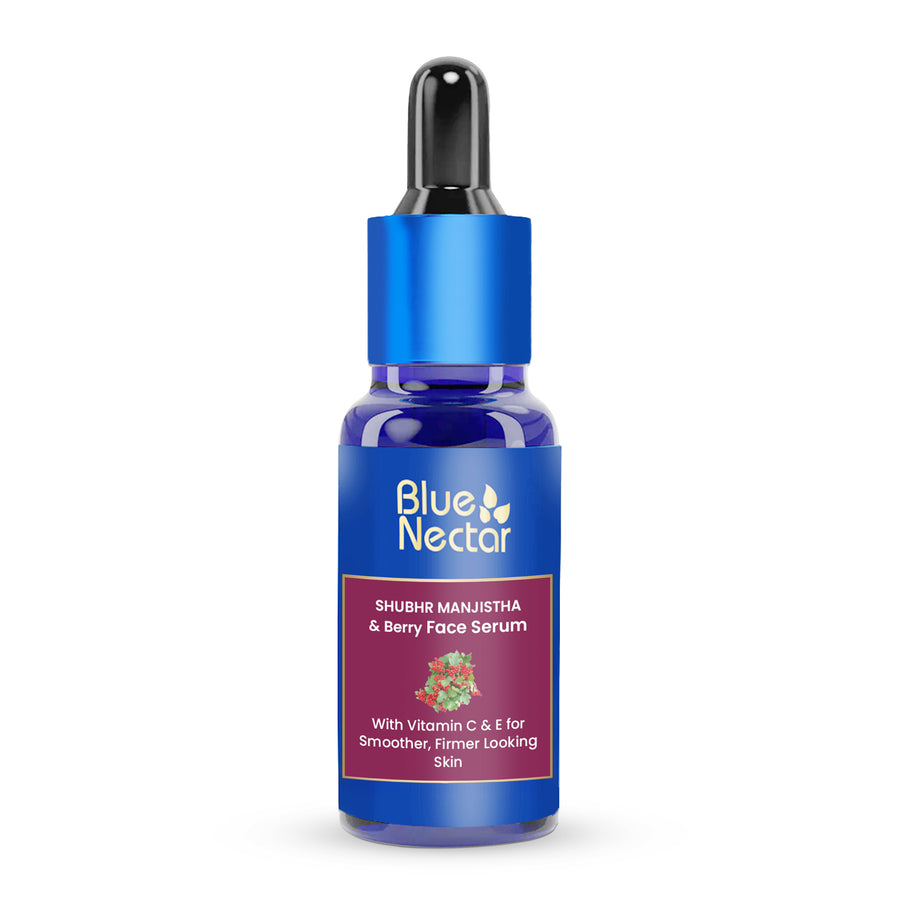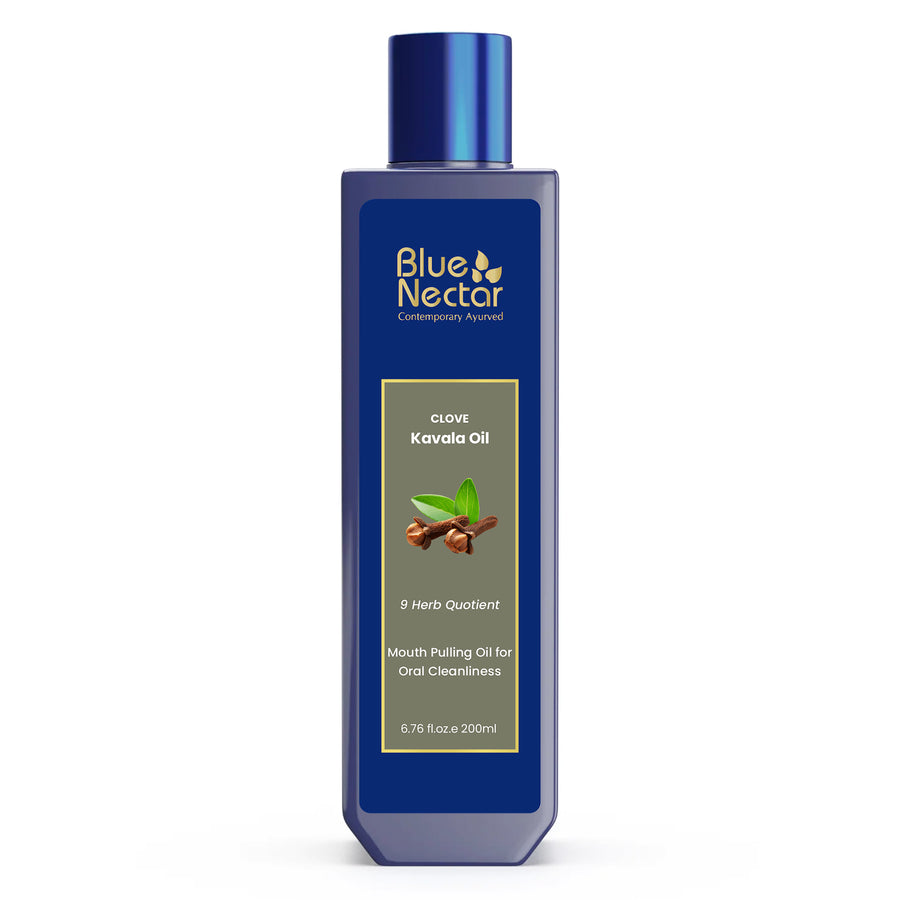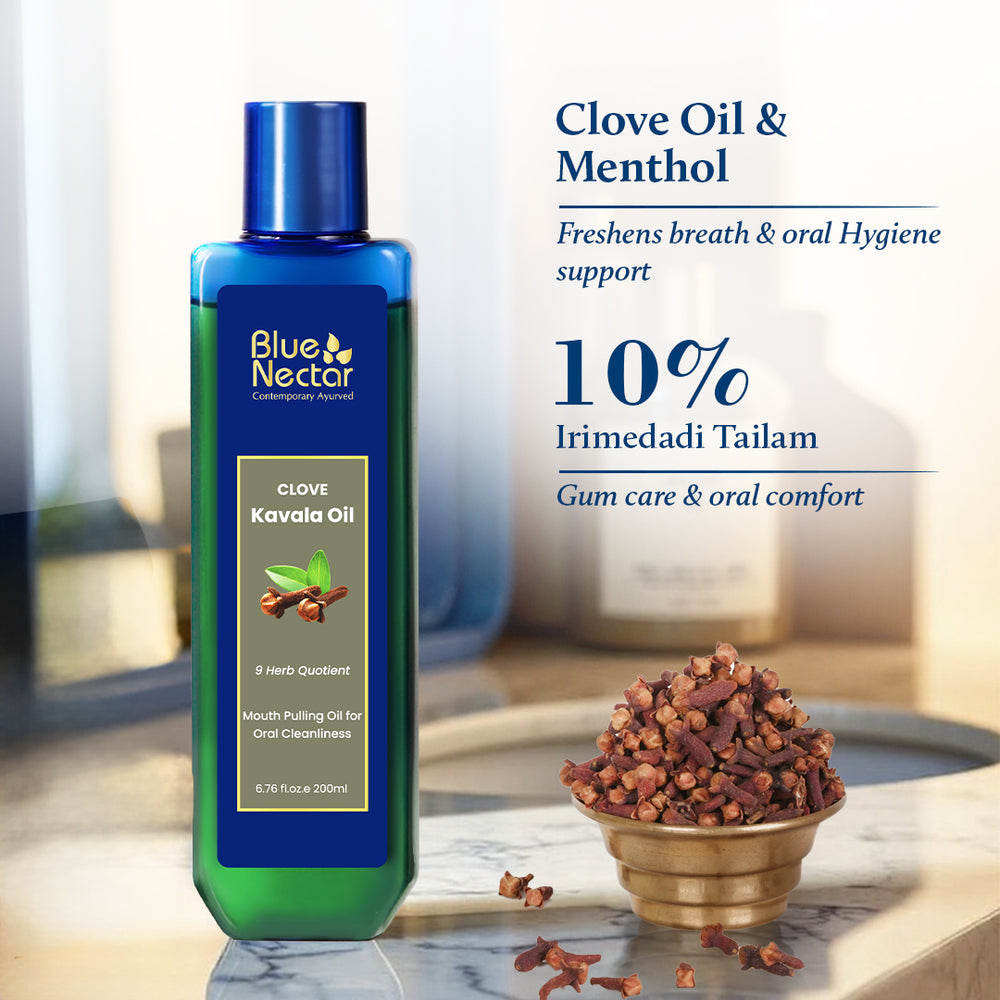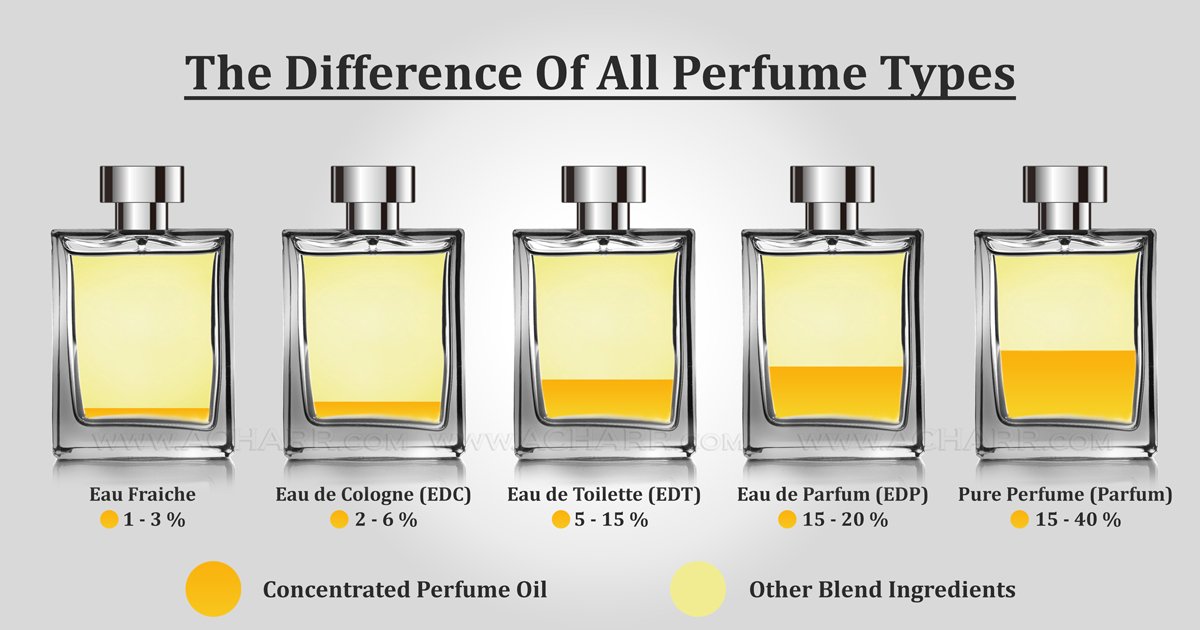Types of Perfumes: A Comprehensive Guide to Fragrances
When the discussion comes to the topic of personal fragrances, they are more than just scents. Often, the type of perfume you opt for ends up being an extension of your personality, mood, and even memories. With a vast variety of options available, choosing the right one can prove to be a daunting task.
Presenting to you, your solution: this blog! Understanding the different types of perfumes can help you make an informed decision. Thus, this guide discusses the various types of perfumes, their scent compositions, and how to select the perfect one for you for every occasion.

Table of Contents |
Understanding Perfume Concentrations
Perfumes are categorised based on their concentration of fragrance oils. The concentration affects the longevity, intensity, and price of the fragrance. Here are the primary categories:
-
Parfum (Extrait de Parfum):
-
Concentration: 20-40% fragrance oils
-
Longevity: 8-12 hours
-
Characteristics: The most concentrated and luxurious form of perfume, parfum has a rich and long-lasting scent. It is perfect for special occasions and for those who prefer a deep, enduring fragrance.
-
Eau de Parfum (EDP):
-
Concentration: 15-20% fragrance oils
-
Longevity: 6-8 hours
-
Characteristics: EDP finds a balance between strength and wearability. It is an ideal choice that is perfect for regular use during the day or night.
-
Eau de Toilette (EDT):
-
Concentration: 5-15% fragrance oils
-
Longevity: 4-6 hours
-
Characteristics: Less intense and invigorating than EDP, EDT is ideal for everyday wear, especially in warm weather.
-
Eau de Cologne (EDC):
-
Concentration: 2-5% fragrance oils
-
Longevity: 2-3 hours
-
Characteristics: Typically fresh and citrus-scented, cologne is effective as an instant pick-me-up but needs to be reapplied during the day.
-
Eau Fraîche:
-
Concentration: 1-3% fragrance oils
-
Longevity: 1-2 hours
-
Characteristics: The least concentrated perfume type, Eau Fraîche is extremely light and delicate, ideal for an impromptu splash of freshness.
Different Types of Perfume Based on Scent Families
Perfumes are divided into several scent families depending on their prime aromatic features. Every fragrance family produces a unique sensation and is appropriate for different personalities and occasions.
-
Floral:
-
Notes: Rose, jasmine, lily, peony, gardenia
-
Best For: Romantic settings, daily wear
-
Who Should Wear It? Floral fragrances are perfect for those who love feminine, elegant, and delicate scents.
-
Citrus:
-
Notes: Lemon, orange, bergamot, grapefruit
-
Best For: Daytime wear, summer seasons
-
Who Should Wear It? If you enjoy fresh, uplifting, and energetic scents, citrus perfumes are a great choice.
-
Woody:
-
Notes: Sandalwood, cedarwood, patchouli, vetiver
-
Best For: Formal events, evening wear
-
Who Should Wear It? Woody fragrances are ideal for confident, sophisticated individuals who prefer warm, natural fragrances.
-
Oriental (Amber):
-
Notes: Vanilla, cinnamon, musk, amber
-
Best For: Evening wear, winter seasons
-
Who Should Wear It? Those who enjoy rich, luxurious, and sensual fragrances will enjoy oriental perfumes.
-
Fresh (Green & Aquatic):
-
Notes: Marine notes, cucumber, green tea, herbs
-
Best For: Casual outings, office wear
-
Who Should Wear It? If you prefer clean, crisp, and invigorating scents, fresh fragrances are a great option.
-
Fruity:
-
Notes: Apple, peach, berries, pineapple
-
Best For: Youthful, playful vibes
-
Who Should Wear It? Fruity perfumes are great for those who love vibrant and cheerful scents.
-
Gourmand:
-
Notes: Chocolate, caramel, coffee, honey
-
Best For: Cozy settings, fall and winter seasons
-
Who Should Wear It? If you love sweet and decadent scents, gourmand fragrances are a delightful choice.
Other Personal Fragrances That Are Also Perfumes
Apart from traditional perfumes, several other personal fragrance types exist:
-
Ittar (Attar):
- Characteristics: Alcohol-free, oil-based, and long-lasting.
- Best For: Those who prefer natural, traditional scents.
- Popular Types: Oudh Ittar, Rose Ittar, Sandalwood Ittar.
-
Solid Perfume:
- Characteristics: Wax-based, small, and easy to carry.
- Best For: Travel-friendly and alcohol-free options.
-
Body Mists & Sprays:
- Characteristics: Light, refreshing, and needs to be reapplied.
- Best For: Daily wear, especially during the hotter months.
-
Essential Oils (Aromatherapy Perfume):
- Characteristics: Pure plant extracts with therapeutic benefits.
- Best For: Those who prefer natural, concentrated scents.
- Popular Types: Lavender, Sandalwood, and Jasmine Essential Oils.
-
Scented Powders:
- Characteristics: Lightly fragranced talcum or body powder.
- Best For: Subtle scenting with a soft touch.
-
Perfume Oils:
- Characteristics: Highly concentrated, alcohol-free, and long-lasting.
- Best For: Intimate, close-to-skin scents.
How to Choose the Right Perfume
Selecting the perfect perfume depends on several factors:
-
Personality: You must select a scent that suits your style and personality. For instance, floral if you are a romantic type, woody for classy people, and fresh for sporty and lively personalities.
-
Occasion: Light and fresh scents are best for daytime and office wear, while richer, bolder fragrances suit evenings and special occasions.
-
Season: Summer calls for airy, citrus, and aquatic scents, whereas warm, spicy, and gourmand fragrances are perfect for winter.
-
Longevity: If you prefer long-lasting scents, opt for EDP or parfum over lighter concentrations.
Conclusion
Personal fragrances go beyond being mere scents! They are a reflection of who you are, the mood you wish to convey, and the memories you want to create. With so many choices to consider, selecting the right perfume can be daunting, but with proper knowledge, it becomes a pleasant experience.
This guide has given a thorough look at the varied types of perfumes, from high-concentration parfums to cooling Eau Fraîche, and also distinct alternatives such as Ittar, solid perfumes, and perfume oils. Whether you prefer floral, woody, citrus, or gourmand fragrances, there is a scent that perfectly complements your personality and occasion.
Now that you are equipped with this knowledge, go ahead! Explore, experiment, and find the fragrance that truly speaks to you!


























Leave a comment